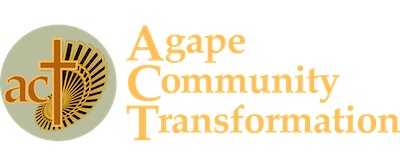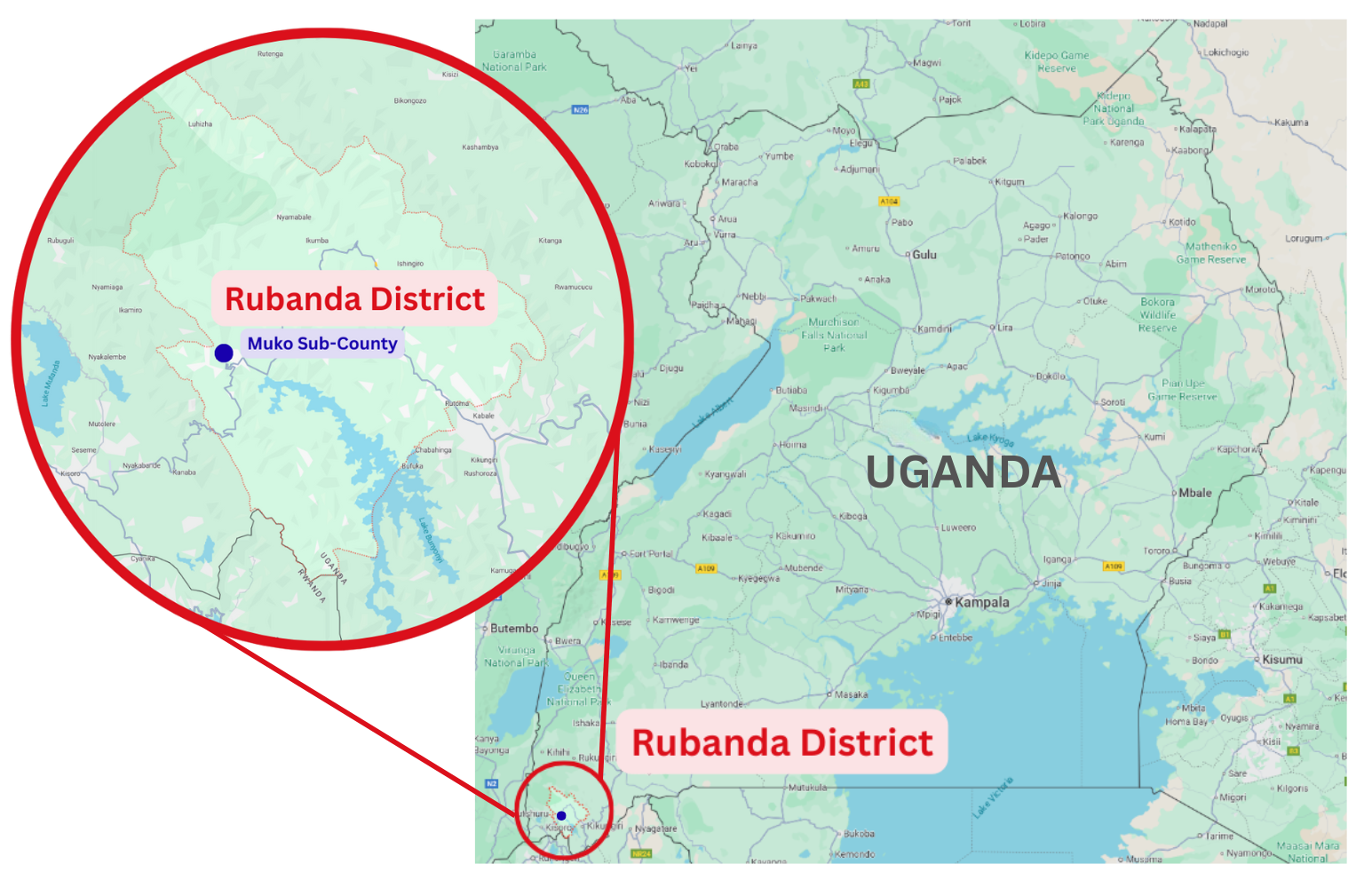February 2019 ACT US Travel Team, ACT Uganda Staff, and Will Buckner, Peace Corps Volunteer
Who We Are
aga·pe (a gah pay), a Greek word meaning "the highest form of love" and "the love of God for humankind and of humankind for God."
Agape Community Transformation (ACT) Uganda has existed since 2003 when two families, one from Uganda and one from the U.S. connected by a letter.
ACT was born in 2003 with a partnership between Muko Sub-County, Uganda and Michigan. ACT is an ecumenical Christian partnership open to working with all people to enhance the spiritual, physical, economic and societal conditions in Uganda, as well as increase faith-in-action in our communities.
There have been many projects in this partnership including the purchase of an ambulance, the building of a solar-powered clinic and vaccine refrigerator, the purchase and renovation of the ACT Resource Center, an student scholarship program, a handcraft program for artisans in the villages, a music program for children, a health promotion program, an agricultural program, and partnering in the administration of a local high school.
Through ACT’s reputation in SW Uganda, the Peace Corps partnered with ACT, an Anglican Diocese and the Ministry of Health sought partnership with us for furthering their programs.
There is one registered NGO in Uganda and one in Michigan, each with a board of directors and teams carrying out the strategies of the partnership. Since then, through six programs, ACT Uganda has continued to meet the needs of Muko Sub-County and the greater Rubanda District in Uganda with 250,000+ community members.
What we do includes:
ACT US Mission:
We work in partnership with ACT Uganda as they pursue their goals for the community development of Muko Sub-County.
ACT Vision:
The ACT Uganda and ACT US partnership is one of support and solidarity, with the Ugandan partners leading the generation of ideas, development and evaluation of programs, and generation of resources
Working shoulder-to-shoulder:
English: Working shoulder-to-shoulder supporting self-development of communities in Muko Sub-County, Uganda.
Rukiga: Kukora Ibega ha Ibega turahweera okwetungura kwabantu b'omukyaro ky'eigomborora rya Muko omuri Uganda.
ACT is made up of two separate legal entities:
ACT Uganda: Registered non-governmental organization (NGO) in Uganda
ACT U.S.: Registered nonprofit in the United States (all volunteer)
ACT U.S. Board
Lynn Pottenger – Board Chair
David Molzahn - HANDS Team Leader
Laura Ault - Secretary & HONORS Scholarship Team Leader
Bill Busch - Facilities Team, Finance Team, FUNDS Task Force, & Handcraft Team Online Sales Team Member
Lori Marsh - Online Fundraising Team Member
Robin Stottlemyer - HEAL Team Leader
Jen Eenigenburg - Communications Team Member
Kelly Busse – Treasurer
Sue Waechter - U.S. Director (non-voting)
ACT Uganda Board
Moses Bahati – Board Chair
Friday Rwamahe - Secretary
Norman Tushabe - Treasurer
Patrick Abeneimwe
Victor Kyatuka
Charity Allen
Charity Mahoro
Generous Turinawe - Uganda Director
ACT Uganda Staff
Generous Turinawe - ACT Uganda Director
Alexander Gumoshabe - ACT Senior Manager
Richard Turinawe - ACT Program Coordinator
Judith Tukahirwa - HEAL Manager
Onesmas Arinda - HANDS Manager
Pamella Musiimenta - HANDS Assistant Manager
Christ Fortunate - MUSIC Manager
Herbert Muhereza - ACT Guard (Security)
Uganda, in East Africa, is part of Sub-Saharan Africa
ACT began in 2003 serving rural Muko Sub-County (approximately 40,000 people living in 74 distinct villages). Muko Sub-County is situated within the District of Rubanda, population 250,000. In 2025 ACT began reaching beyond the borders of Muko Sub-County into the greater Rubanda District, giving more students a chance to attend school, as well as working with the Government Ministries of Health and Agriculture. We are excited and appreciative of this opportunity.
The Sub-County is in the southwest corner of the country near a town called Kabale on the shores of Lake Bunyonyi. Muko is about 6,000 ft elevation with temperatures consistently between 55 degrees F and 80 degrees F year round.
Most of the people of this area are part of the Bakiga (ba chee ga) tribe. English is the official language of the country but many still speak Rukiga (roo chee ga). The average family size is 6 children. Most are subsistence farmers.
This region, considered to be the food basket for Uganda, has unacceptable nutrition statistics compared to the rest of the country in addition to high mortality rate, poor hygiene and poor sanitation practices. Learn more about ACT Programs
Thank You to Our Supporting Organizations:
Aldersgate United Methodist Church, Midland, Michigan
Blessed Sacrament Catholic Church, Midland, Michigan
First Congregational United Church of Christ, Owosso, Michigan
First United Methodist Church, Midland, MI
First and Second Presbyterian Churches, Marlette, Michigan
First Presbyterian Church, Grand Haven, Michigan
First Presbyterian Church, Holt, Michigan
First Presbyterian Church, Lansing, Michigan
Four Points Methodist Church, LaPorte, Swan Valley, Hemlock, and Nelson, Michigan
Homer United Methodist Church, Midland, Michigan
Ikamiro Church of Uganda (Anglican), Uganda
Kiwassee Kiwanis, Midland, Michigan
Lake Huron Presbytery, PCUSA (endorsed by)
Memorial Presbyterian Church, Midland, Michigan
Muko Assemblies of God (Pentecostal Church), Uganda
Muko Church of Uganda (Anglican), Uganda
Presbyterian Church of Traverse City, Michigan
Morning Rotary Club, Bay City, Michigan
Rotary Clubs, Midland, Michigan (both Morning and Noon)
Rotary Club, Traverse City, Michigan
St. Francis Catholic Church, Traverse City, Michigan
St. John's Episcopal Church, Midland, Michigan
Trinity Lutheran Church, Midland, Michigan
Ugandan Martyrs Church, Muko Parish, Uganda (Catholic)
Unitarian Universalist Church of Grand Traverse, Traverse City, Michigan

